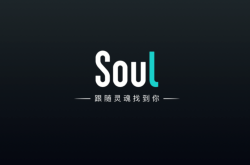How long will the volatility in Hong Kong stocks last?
![]() 07/24 2024
07/24 2024
![]() 485
485

Despite gains in US stocks overnight, Hong Kong stocks fell in early Asian trading, with the Hang Seng Index dropping 0.3% to 17,643.50. Although high valuations and seasonal weakness have triggered some warnings about stock corrections, sentiment generally remained calm following US President Biden's decision to withdraw from the presidential race and support Vice President Harris, according to analysts at United Overseas Bank in a commentary. By the close, the Hang Seng Index had fallen 0.94%.
Regarding the outlook for Hong Kong stocks, Guotai Junan Securities noted that with the likelihood of Donald Trump being elected in the US rising, policy volatility is expected to decrease, while important domestic conferences have concluded with clear policy support and direction, reducing market uncertainty on the numerator side. After the previous pessimistic expectations from the earlier stage have been largely digested, the upside potential for Hong Kong stocks is expected to open up. The subsequent rally in Hong Kong stocks is optimistic, with the tech growth style showing greater resilience structurally.
China International Capital Corporation (CICC) analysis stated that while Hong Kong stock valuations have recovered significantly, they are still at relatively low historical levels. If the predicted PE for the Hang Seng Index can return to the high point seen in mid-May this year, or if the risk premium can return to the low point of 6.08%, the valuation recovery space for the Hang Seng Index is approximately 11.2% to 13.6%. Liu Hongda, manager of the Wanjia Shanghai-Hong Kong-Shenzhen Blue Chip Hybrid Fund, expressed optimism about the performance of the Hong Kong stock market in the next two quarters, with a preference for upstream raw material companies and dividend sector investment opportunities in terms of industry allocation.
Xiaomi Group-W (01081.HK) closed down 1.51%. News-wise, at 10:00 am on July 23, Xiaomi's two foldable new phones, the MIX Fold 4 and MIX Flip, went on sale, with starting prices of 8,999 yuan and 5,999 yuan, respectively. Xiaomi Group's embodied intelligence enterprise "Xiaoyu Intelligence," in a strategic partnership with Panasonic affiliate Tangshan Panasonic, will jointly develop large-scale intelligent welding robots. Qiao Zhongliang, the founder of Xiaoyu Intelligence, is one of Xiaomi's founding members and was once the head of MIUI development.
Goldman Sachs published a research report stating that it has raised Xiaomi's revenue forecasts for the second quarter of this year and 2024 to 2026 by 2% to 3%, reflecting more robust long-term sales growth expectations for the Internet of Things (IoT) and smart electric vehicles. The bank also raised Xiaomi's net profit forecasts for 2024 to 2026 by 1% to 4%, mainly due to lower losses from electric vehicles and new measures for higher-margin services and IoT sales for vehicles.
The bank expects Xiaomi's smartphone gross margin to record 13.4%, 13.7%, and 13.2% in the second quarter of this year and next year, respectively, and also expects Xiaomi to maintain its important position in the AI-driven interactive network field. The bank also mentioned that overseas revenue has resumed growth since the first quarter of this year and is expected to record a compound annual growth rate of 14% from 2023 to 2026. Goldman Sachs slightly raised Xiaomi's target price from HK$23 to HK$23.2, maintaining a "Buy" rating.
Bank of China International published a research report stating that the team attended Xiaomi's annual event on Friday (July 19), during which CEO Lei Jun showcased the company's latest foldable series, the MIX Fold 4, its first foldable phone, the MIX Flip, Redmi K70 Ultra, wearable devices, large appliances, and the SU7 Ultra prototype. The bank was encouraged by Xiaomi's progress towards premiumization, as the new products continue to demonstrate competitive performance with more fashionable and luxurious design language, and is particularly optimistic about Xiaomi's ability to replicate the success of the SU7 in future product lines, thus raising electric vehicle sales and profit margin forecasts for 2024 to 2026.
Bank of China International believes that foldable phones such as the MIX Fold and Flip will become new growth drivers, and expects electric vehicle sales to reach 120,000, 240,000, and 410,000 units from 2024 to 2026, with gross margins of 10%, 15%, and 18%, respectively. The bank also raised the company's adjusted earnings per share forecasts for 2024 to 2026 by 1%, 4%, and 11%, respectively. Using the Sum of the Parts (SOTP) valuation method, the bank assigned a 15x P/E ratio to traditional business forecasts and a 3x price-to-sales ratio to electric vehicle business forecasts, slightly raising Xiaomi's target price from HK$25.18 to HK$25.72, reiterating its status as a top pick and maintaining a "Buy" rating.
TCL Electronics (01070.HK) closed down 3.54%. The company earlier announced its global shipment data for the first half of 2024, revealing the key reason behind its earlier forecast of an approximately 130% to 160% year-on-year increase in adjusted net profit attributable to shareholders for the first half. Data showed that TCL Electronics shipped 6.68 million units in the second quarter of 2024, a year-on-year increase of 12.9% and a quarter-on-quarter increase of 14.3%. For the first half, TCL shipped 12.52 million TVs globally, a year-on-year increase of 9.2%.
From a financial perspective, TCL Electronics' business scale has grown and profitability has improved, which investors seem to have anticipated. Since January this year, TCL Electronics' share price has entered an uptrend, reaching a high of HK$6.81 on June 21, with the highest year-to-date gain reaching 185%. According to Zhitong Finance APP data, as of July 16, southbound funds held 249 million shares of TCL Electronics, representing a 9.85% stake, an increase of 3.16 percentage points from the 4.16% stake held on April 16.
BYD Company Limited (01211.HK) closed down 3.09%. According to a filing disclosed by the Hong Kong Stock Exchange on July 22, Berkshire Hathaway Energy Company (formerly known as MidAmerican Energy Holdings Company) sold 395,500 H shares of BYD at an average price of HK$246.96 per share on July 16, valued at approximately HK$345 million. After the sale, Berkshire Hathaway's latest shareholding stands at 54.20 million shares, with its long position reduced from 5.06% to 4.94%.
Based on the latest data disclosure, the company's shareholding ratio in BYD has dropped to 4.94%. According to relevant regulations, subsequent reductions in holdings will not require disclosure. From the current trend, BYD's share price has not been significantly affected. Notably, BYD's share price has still risen 17.4% year-to-date in 2024. CICC pointed out earlier today that the market may have already digested news of Buffett's continuous share reductions and is optimistic about BYD's future development.
Sunny Optical Technology (Group) Company Limited (02382.HK) closed down 2.36%. News-wise, Sunny Optical Technology announced positive earnings news, expecting to record profit attributable to shareholders of approximately RMB 1.048 billion to RMB 1.092 billion for the first half of 2024, an increase of approximately 1.4 to 1.5 times compared to the same period in 2023, significantly higher than market expectations of RMB 859 million. CCB International noted that while smartphone camera specifications upgrades were limited in 2024, high demand from Apple and Android promoted HLS (handset lens) shipment growth; shipments of automotive-related products continued to slow down in the first half of 2024, mainly due to downstream inventory digestion and weaker demand.
Huachuang Securities published a research report maintaining a "Strong Buy" rating for Sunny Optical Technology (02382), and raising its 2024-2026 net profit forecasts to RMB 2.114 billion/RMB 2.461 billion/RMB 2.799 billion, with a target price of HK$63.4. Morgan Stanley noted that with the cyclical industry recovery already achieved, the industry catalyst is whether AI smartphones can trigger the next product cycle and whether Sunny Optical can seize this growth opportunity. The bank also expects the growth prospects of automotive lenses to affect Sunny Optical's valuation.
Shandong Gold (01787.HK) closed down 3.26%. Goldman Sachs stated that due to price sensitivity and recent price surges, Chinese gold demand is currently cyclically weak, and the Chinese market is still digesting the rise in gold prices. The original forecast of gold prices rising to US$2,700 per ounce by the end of this year may now be achieved slightly later.
Goldman Sachs said that the People's Bank of China did not purchase gold reserves for the second consecutive month in June.
Goldman Sachs believes that the Chinese market is particularly price-sensitive, estimating that a 10% drop in Shanghai gold prices will drive a 16% increase in China's physical gold demand. While recent gold price surges are suppressing cyclical demand, structural changes have kept China's structural gold demand largely stable. Goldman Sachs stated that emerging market central banks, including China, are likely to continue to purchase gold frequently, citing the central banks' firm commitment to gold purchases, the potential for the US to cut interest rates, and geopolitical tensions, reiterating that gold prices will reach US$2,700 per ounce next year.
Kingdee International Software Group Company Limited (00268.HK) closed down 2.58%. Goldman Sachs issued a report stating that in the context of macroeconomic slowdown and lower long-term visibility, the bank has reassessed the valuations of the Chinese software industry it covers, believing that future uncertainty is greater. Among them, the bank continues to favor software companies with higher revenue visibility, including those with higher recurring revenue or more large enterprise customers, as these customers have higher software budgets or stronger localization capabilities.
The bank believes that Kingdee (00268.HK) has a relatively high proportion of recurring revenue. Considering its higher revenue visibility but lack of profitability, the bank has revised its target price downward from HK$14.18 to HK$12.13, based on a combination of discounted cash flow rates and short-term price-to-sales ratios, while maintaining its "Buy" rating. Based on Discounted Cash Flow (DCF) valuation, the bank has revised downward its forecasts for Kingdee's free cash flow (FCF) from 2032 to 2041 by 4% to 22%, reflecting lower long-term visibility of customer spending. Additionally, the bank expects Kingdee's revenue for the second half of fiscal year 2024 to grow by 19% year-on-year, compared to 17% growth expected for the first half.
Alibaba Group Holding Limited (09988.HK) closed down 0.87%. BOCOM International issued a research report forecasting Alibaba's total revenue for the first quarter of fiscal year 2025 to be RMB 251 billion, a year-on-year increase of 7%; adjusted EBITA margin of 17%, a decrease of approximately 2 percentage points year-on-year, mainly considering increased investments in e-commerce to gain market share. The bank expects Alibaba's e-commerce GMV to grow at a year-on-year rate of 6%, in line with overall market performance. Benefiting from the continued execution of price competitiveness and user-centric strategies, as well as easing competition margins amid declining traffic dividends from live streaming e-commerce platforms, Tmall's 618 sales growth exceeded expectations.
The bank noted that: 1) Tmall's revenue is expected to increase by 1% year-on-year, with direct e-commerce revenue expected to be approximately 5% lower than VA. Considering the high base in the same period last year and referencing the difference in retail sales performance between the first and second quarters, the decline in the second quarter may be slightly larger than that in the first quarter. 2) International commerce is expected to continue to maintain high revenue growth expectations; 3) Cloud business is expected to resume mid-single-digit year-on-year growth; 4) Local life performance is in line with the industry; 5) Cross-border logistics fulfillment services are expected to drive Cainiao's revenue to increase by 22% year-on-year; 6) Digital entertainment revenue is raised by 9%, driven by the excellent performance of Youku's "Mo Yu Yun Jian".
The bank expects the company's overall EBITA growth to remain under pressure in the first quarter of fiscal year 2025, primarily due to continued investments in Tmall and active international business expansion overseas. The bank maintains its judgment that profit margins will gradually recover in 2026. Based on SOTP, the bank maintains its target price of US$111/HK$107. The company's current share price corresponds to CY2024/25 P/E ratios of 9/7.6 times, with a focus on shareholder returns and key GMV recovery data, maintaining a "Buy" rating.
NIO Inc. (09886.HK) closed up 1.55%. UBS issued a research report stating that although NIO's second-quarter deliveries reached 57,000 units, exceeding the upper limit of management's guidance, the bank believes the impact on narrowing losses in the second quarter and full year will be limited. The bank expects the company to incur a loss of approximately RMB 4.9 billion in the second quarter, a quarter-on-quarter narrowing of 6% and a year-on-year narrowing of 20%. The bank also expects the market's response to delivery performance to be neutral, noting that recent attention remains focused on the OnvoL60, scheduled for delivery in September.
UBS has revised down its valuation basis for NIO, from a forecast P/S ratio of 1.4x next year to 1x, reflecting a shift in investor focus from growth to returns, as well as the 20% equity dilution impact from NIO's US$2.2 billion investment from Abu Dhabi's CYVN. The bank has accordingly lowered its US target price from US$7.2 to US$5.2, maintaining a "Neutral" rating.
Hong Kong Exchanges and Clearing Limited (00388.HK) closed down 1.42%. Citi issued a report expecting Hong Kong Exchanges to report strong second-quarter results but with uncertain growth prospects. As market sentiment weakened again, average daily turnover has been approximately HK$100 billion since July. Citi noted that Hong Kong Exchanges will announce its second-quarter results on August 21. The bank forecasts net profit for the second quarter to be HK$3.3 billion, up 10% quarter-on-quarter and 12% year-on-year, which is 2% higher than market forecasts.
Benefiting from the recovery in average daily turnover, the bank forecasts total revenue to be HK$5.6 billion, up 8% quarter-on-quarter and 11% year-on-year. Investment income may decline quarter-on-quarter from a high base but can still be maintained at HK$1.2 billion, down 8% quarter-on-quarter and up 8% year-on-year. The bank has revised down its earnings per share forecasts for Hong Kong Exchanges for fiscal years 2024 to 2026 by 1% to 3% to reflect the downward revision in average daily turnover forecasts. The target price has been revised down accordingly from HK$240 to HK$230, with a "Sell" rating.
Tencent Holdings Limited (00700.HK) closed down 1.88%. Nomura issued a report maintaining its "Buy" investment rating and HK$467 target price for Tencent Holdings (00700.HK). Nomura expects Tencent's second-quarter earnings to exceed expectations. The bank estimates that Tencent's non-GAAP earnings per share will grow steadily (by 34% year-on-year).
The bank indicated that driven by a 9.6% year-on-year increase in domestic gaming revenue and an 11% year-on-year increase in overseas gaming revenue, Tencent's online gaming revenue could grow by 10% year-on-year. Tencent's domestic gaming business might see a recovery in the second quarter due to the launch of the new blockbuster game "Dungeon & Fighter" in China, which has topped daily revenue charts since its release on May 21. Nomura expects Tencent's online advertising revenue to grow by 17% year-on-year, with video account (VA) ads accounting for 18% of the share. The bank projects that its gross profit margin will increase by 6.6 percentage points year-on-year to 54%, supporting a robust 34% year-on-year growth in second-quarter earnings.






